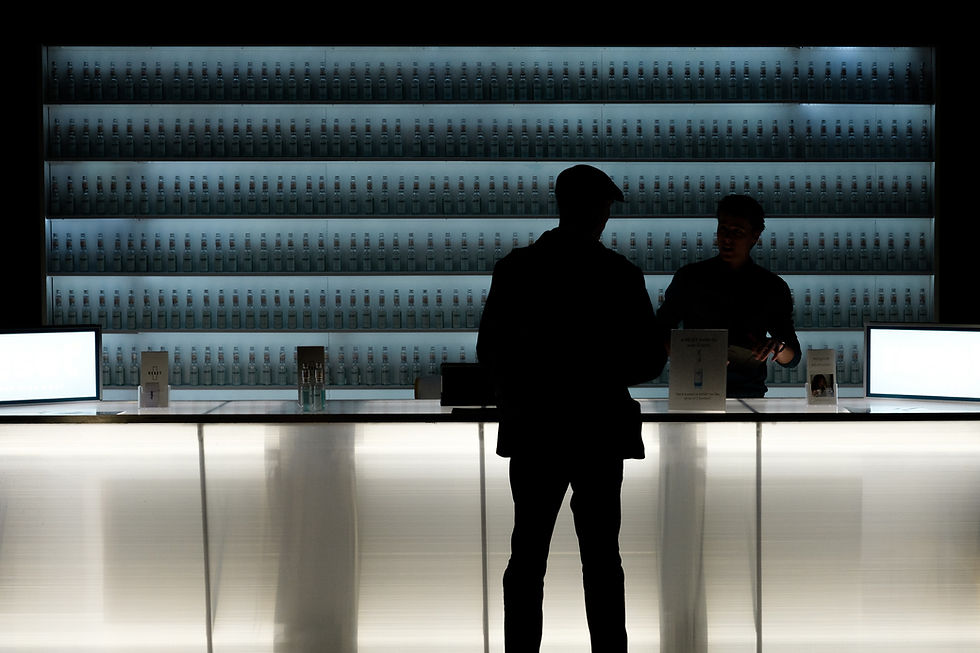Checkout Procedures
- Shweta Sinha
- Jan 28, 2023
- 3 min read
Updated: Dec 19, 2023
CASH AND CREDIT
INDIAN CURRENCY AND FOREIGN CURRENCY
The most widely used mode of account settlement is currency notes. It can be local currency
or foreign currency. The cashier should check if the currency notes are genuine, before
accepting them.
Foreign Currency
The hotel industry in any country is a prime source for the generation of foreign currency
exchange. The hotel should have a license called “Restricted Money Changers License” to
exchange foreign currency.
Procedure for accepting foreign currency
The central bank has fixed some actions and procedures which every front office cashier has
to follow while receiving foreign exchange. The actions or procedures which are followed are
as follows:
Front office cashier asks the guest for passport and will verify some identification from the passport, for example name and photo, place and date of issue, date of expiry of the passport.
Front office cashier asks the guest for room number to confirm his/her status of being resident.
In case of nonresident guest, the front office cashier directs the guest to go to the lobby manager for getting authorization who will only extend this facility to VIPs or regular guests of the hotel.
If the foreign exchange is accepted by the Government then transactions are done in Dollars, Sterling pounds, Euros and Yen.
Front office cashier receives the cash or Traveler’s Check.
Compute the total amount of local currency to be paid by multiplying the total amount of foreign currency by the exchange rate that is exhibited at the cabin.
Fill the details in the Foreign Exchange Encashment Certificates. The Foreign Exchange Encashment Certificates come in serially numbered books for better control.
Front office cashier requests the guest to sign the Traveler’s Check in case of exchanging this check and make sure that the sign is matched with the earlier signature of the guest.
Request the guest to sign the Foreign Exchange Encashment Certificate and compare the sign with passport sign.
Provide the total amount of local currency with the original Foreign Currency Encashment Certificate to the guest.
Affix the second copy of the Foreign Currency Encashment Certificate to the Travelers Check.
Leave the third copy of the certificate in the certificate book.
Fill the details in the Record of Foreign Currency Transacted, which is a control sheet of all foreign currency transactions in a sheet.
Under the Foreign Exchange column, fill the details in the Front Office Cashier’s Report.
These are some general procedures which are subjected to change according to laws of different countries & states and rules set by particular hotel itself.
Traveller’s Cheque
A Traveller’s Cheque or TC is an internationally accepted cheque for a sum in a specific
currency that can be exchanged elsewhere for local currency or goods. It is a convenient
way of transporting currency.
The value of traveller’s cheque is written on it. It is issued by financial institution. There are
two spaces for the buyer’s signature-one is put in front of of issuing authority and the second
is put in front of encashing authority. A traveller’s cheque can not be encashed if the second
signature does ot tally with the first one. The traveller’s cheque has the validity of 6 months.
An encashment certificate shall be issued to the guest.
TRANSFER OF GUEST ACCOUNTS
-- Yet to be updated --
EXPRESS CHECKOUT
The Express Check-Out is a speedy check-out procedure in which guests can avoid long
queues and waiting time at the cashier’s desk and check-out themselves. It also reduces the
pressure at the cashier’s desk. The morning check-out crowd at the front desk can also be
reduced. Express Check-Out is normally only possible if the payment is done by credit card.
Express checkout standard procedure:
The guest is given the Express Check-Out (ECO) form on the morning of his date of departure.
The guest signs the ECO form and this authorizes the hotel to charge the outstanding balance to his credit card.
The guest leaves the hotel without having to go through the standard checkout procedure.
The front desk cashier prepares the guest’s final bill and mails a copy to the guest.
The hotel sends the signed ECO form and the credit card imprint to the credit card company towards payment of the bill.




Comments